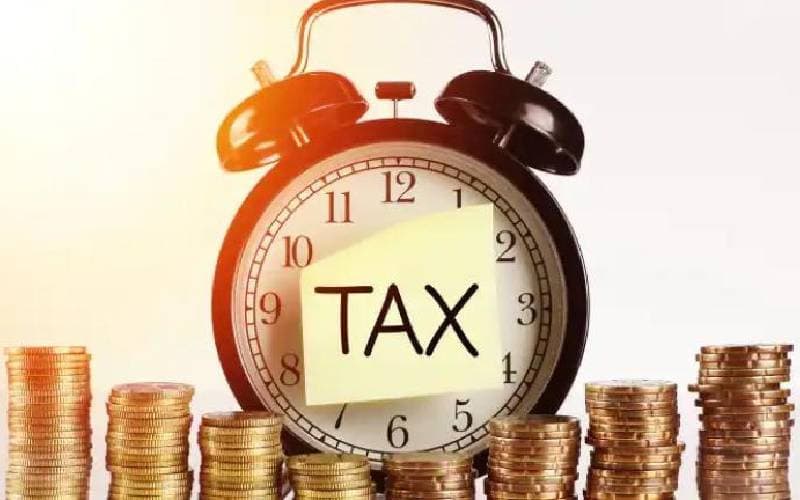We're loading the full news article for you. This includes the article content, images, author information, and related articles.
The protests that erupted in June and July 2024, and reignited in July 2025, were triggered by the Finance Bill — but the discontent ran far deeper. As tens of thousands of mostly young Kenyans took to the streets, many carrying placards

Byline: Nairobi, Kenya –
The protests that erupted in June and July 2024, and reignited in July 2025, were triggered by the Finance Bill — but the discontent ran far deeper. As tens of thousands of mostly young Kenyans took to the streets, many carrying placards that read “We Are Tired!” and “Taxed Into Poverty,” it became clear that this was not simply a backlash against fiscal legislation. It was a national referendum on how Kenyans relate to their government, and whether the social contract built on taxation and public trust still holds.
At the heart of the unrest lies a profound question: Do Kenyans believe the government taxes them fairly — and uses those taxes to serve them?
The Finance Bill 2024 proposed sweeping tax reforms, including new or increased levies on essentials such as bread, mobile money transactions, petroleum products, and vehicle ownership. Though some of the more controversial clauses were dropped following public outcry — including the 16% VAT on bread — the final version of the bill still imposed higher burdens on an already stretched population, with the stated goal of growing revenue and reducing Kenya’s reliance on debt.
The government defended the bill as necessary for fiscal consolidation amid rising debt service obligations. But many Kenyans viewed it as tone-deaf, punitive, and regressive, disproportionately affecting low- and middle-income earners while offering little in return.
“They are not taxing wealth — they are taxing survival,” said Samuel Mwangi, a teacher in Thika. “And then they tell us it’s patriotism.”
Kenya’s tax-to-GDP ratio is among the highest in East Africa, yet public trust in how tax revenues are used remains stubbornly low. According to a 2024 survey by TIFA Research, 72% of Kenyans do not believe their taxes are used efficiently, and 68% feel the burden of taxation is unfairly distributed.
This sentiment is reinforced by repeated scandals involving public funds — from the KEMSA COVID-19 procurement debacle to reports of inflated government projects and misallocated county budgets. For many citizens, paying taxes feels like throwing money into a black hole.
“Why should I pay more for fuel and bread while politicians drive fuel-guzzlers on taxpayer-funded convoys?” asked Sharon Achieng, a university student in Kisumu. “It’s theft — not taxation.”
Kenya’s economy is predominantly informal — roughly 85% of the workforce operates outside formal tax structures, according to the Kenya Revenue Authority (KRA). While the government seeks to expand the tax base, critics argue it’s doing so by squeezing the informal sector rather than formalizing or supporting it.
Attempts to tax digital creators, small traders, and mobile money users have been viewed as targeting the most accessible — not the most capable — revenue sources. This has widened the gap between the state and the hustler economy it claims to champion.
“Taxation without services or dignity leads to rebellion,” warned economist Kwame Owino of the Institute of Economic Affairs. “This generation is saying: we don’t mind contributing — but we want accountability and equity.”
The Finance Bill protests marked a generational shift. The image of the silent, overburdened taxpayer has been replaced by digitally savvy, politically engaged youth who demand transparency and fairness. Hashtags like #RejectFinanceBilland #RutoMustGo trended across platforms, linking taxation with broader governance issues — from corruption to overborrowing to exclusion.
Digital organizers created infographics breaking down budget allocations, exposed suspicious line items, and livestreamed protests. What emerged was not just resistance to a bill, but a civic education movement powered by frustration and smartphones.
In theory, taxation is a cornerstone of democratic citizenship: people contribute to the state, and the state delivers public goods and protection. But in Kenya, the legitimacy of that exchange is increasingly in question.
The Finance Bill saga has exposed a disconnect between lawmakers and the public. Public participation hearings were marked by tokenism, and many MPs appeared out of touch with the lived realities of their constituents. The protests, then, were not just economic — they were existential.
“We are not anti-tax. We are anti-theft,” read one viral placard in Nairobi’s CBD.
The government eventually withdrew parts of the bill and promised to listen more attentively to the youth. But without deeper structural changes — in how taxes are levied, how funds are managed, and how leaders engage citizens — the crisis of legitimacy will persist.
Policy analysts argue that Kenya must:
Reform budget transparency and citizen participation frameworks.
Reassess tax equity, especially in consumption-based levies.
Prioritize visible service delivery linked to tax collections.
Rein in public wastage and address corruption with real prosecutions.
Until then, the question hanging over Kenya’s revenue policy remains unanswered: Do the people still believe in the bargain of taxation — or are they simply being forced to fund a government that does not serve them?
Keep the conversation in one place—threads here stay linked to the story and in the forums.
Sign in to start a discussion
Start a conversation about this story and keep it linked here.
Other hot threads
E-sports and Gaming Community in Kenya
Active 9 months ago
The Role of Technology in Modern Agriculture (AgriTech)
Active 9 months ago
Popular Recreational Activities Across Counties
Active 9 months ago
Investing in Youth Sports Development Programs
Active 9 months ago